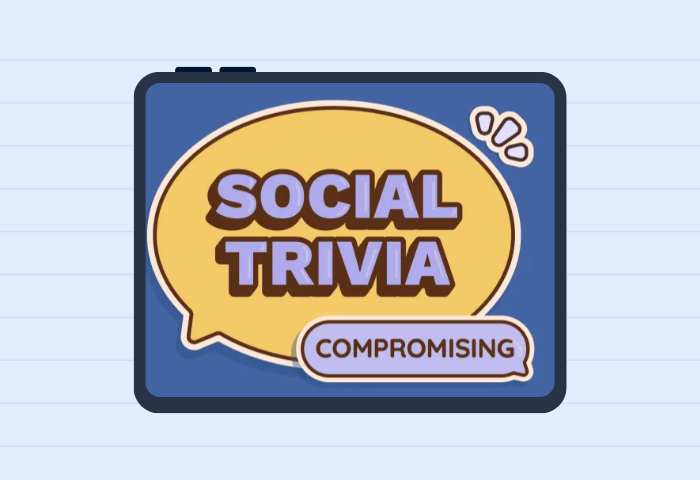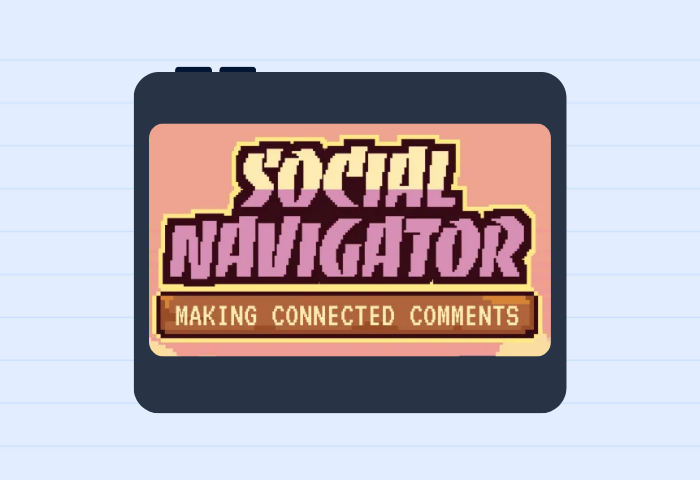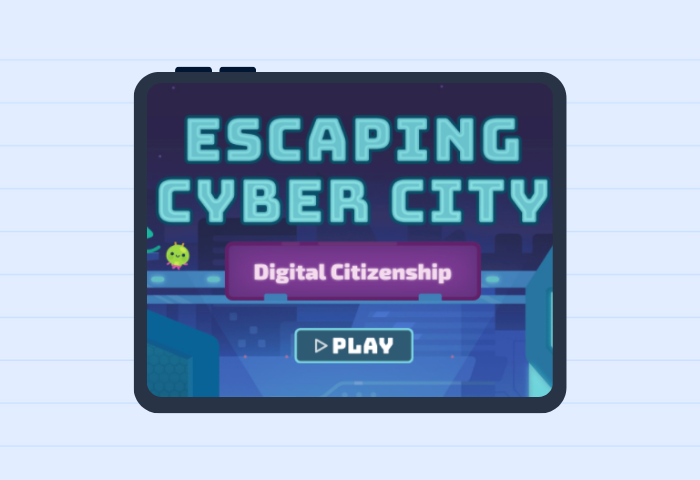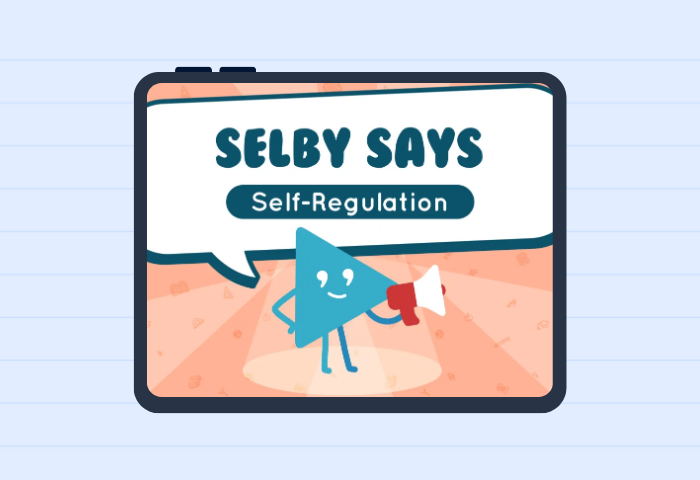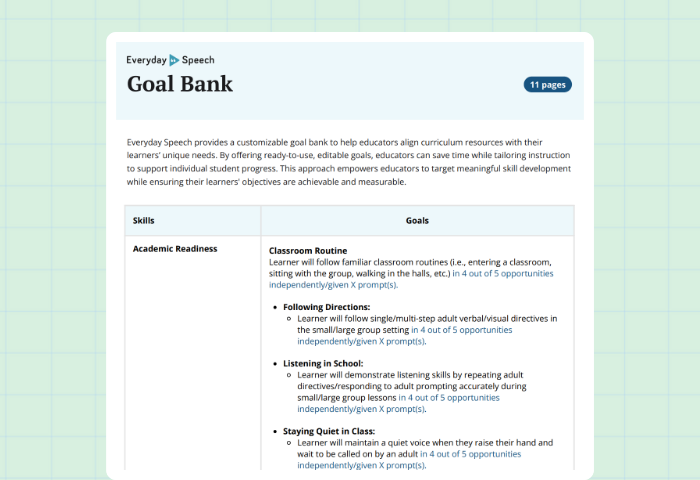How to Teach Executive Functioning Skills (Clinician-Tested Strategies)
Get free social skills materials
No-prep lessons on self-regulation, emotional recognition, conversation skills, and more.
Sign up hereExecutive functioning skills are essential for success in both the classroom and daily life. These mental processes help students stay organized, start tasks, manage time, adapt to changes, and regulate their emotions. When executive functioning breaks down, students may struggle to keep up, even if they are bright and motivated.
Related resources:
Educators and support professionals play a critical role in helping students build these skills. With the right instruction, structure, and tools, students can learn to manage challenges and develop habits that lead to independence. This article brings together practical strategies, free lesson plans, and research-informed tools to support executive functioning at every level.
Download Free Executive Functioning Activities
Teach skills like organization, planning, and task initiation with resources for interventions and whole-class lessons.
What Are Executive Functioning Skills?
Executive functioning skills are the mental processes that help students manage their thoughts, actions, and emotions in order to achieve goals. Think of them as the brain’s “air traffic control system.” These skills allow students to plan ahead, stay focused, remember instructions, regulate emotions, and adapt when things do not go as expected.
These skills are especially important in school, where students are constantly shifting between tasks, following multi-step directions, managing materials, and responding to social and emotional demands. For students with ADHD, autism, learning disabilities, or trauma backgrounds, executive functioning challenges are often a central and sometimes overlooked barrier to success.
The Core Components of Executive Functioning
Executive functioning is not a single skill. It is a set of interconnected mental processes that help students regulate their behavior, stay organized, and adapt to change. These core skills develop gradually throughout childhood and adolescence, and they play a critical role in classroom learning, behavior, and social interactions.
Working Memory
Working memory allows students to hold and manipulate information in their minds over short periods. For example, a student uses working memory when they hear the teacher say, “Take out your math book, turn to page 42, and solve the first three problems,” and they are able to follow through without needing to ask again. When working memory is weak, students may lose track of multi-step directions or struggle to stay engaged with tasks that require sustained mental effort.
Inhibitory Control
Sometimes referred to as impulse control, inhibitory control helps students pause before acting and consider the consequences of their behavior. This might look like waiting for a turn during a group game, raising a hand instead of calling out, or resisting the urge to get up in the middle of a lesson. Without this skill, students may seem impulsive or inattentive, but often they are simply struggling to apply the brakes on their responses.
Cognitive Flexibility
Cognitive flexibility allows students to shift attention, adjust to new routines, and see problems from different angles. A student is using cognitive flexibility when they cope with a change in the daily schedule, try a different strategy after getting stuck, or understand that someone else might see a situation differently. It is a key skill for transitions, perspective-taking, and emotional regulation.
Why Executive Functioning Matters in School
Together, these executive functioning skills support the kinds of everyday tasks students are expected to manage throughout the school day, such as:
- Starting and finishing assignments
- Managing transitions between activities or settings
- Regulating emotional responses to frustration or changes
- Navigating peer interactions and problem-solving socially
- Keeping track of materials and organizing tasks
When a student struggles with one or more components, they may appear inattentive, disorganized, oppositional, or emotionally reactive. But underneath, it is often not a matter of willpower. It is a breakdown in executive functioning. Understanding the root of these behaviors is the first step toward helping students build the skills they need to succeed.
Signs a Student Is Struggling with Executive Functioning
Executive functioning challenges often show up in subtle ways before they are ever formally identified. While some students may have a diagnosis such as ADHD or a learning disability, others are often mislabeled as disorganized, lazy, or defiant. In reality, they may be missing key skills that help them plan, regulate, and follow through.
Here are some of the most common signs that a student may be struggling with executive functioning:
- They frequently lose materials. Folders go missing, assignments are left at home, and backpacks are packed with loose papers. If they have an organizational system, it often falls apart quickly.
- They have difficulty starting tasks. Even when they understand what to do, they may sit and stare at a blank page. These students often stall by asking to go to the bathroom, sharpening a pencil, or finding other ways to avoid the task.
- They seem to forget directions quickly. After verbal instructions are given, they may need constant reminders or rely heavily on peers to figure out what comes next.
- They overreact to small changes or frustrations. A minor change in the schedule, a new partner, or an unexpected challenge can trigger a level of frustration or emotional response that seems out of proportion.
- They jump from one activity to another without finishing. These students may leave tasks incomplete, abandon materials, or move ahead before cleaning up or closing out what they started.
- They interrupt, talk out of turn, or act impulsively. This might look like calling out during lessons, grabbing materials that do not belong to them, or making decisions without thinking through the consequences.
- They struggle with time management. Assignments may take much longer than expected, deadlines are often missed, and they frequently underestimate how long a task will take.
Not every student will show all of these signs. But when these behaviors happen consistently across settings and begin to interfere with learning or relationships, it is often a sign that the student needs support building executive functioning skills. More reminders or stricter rules may not address the root issue.
How to Teach Executive Functioning Skills
Executive functioning skills do not just develop on their own. They need to be taught directly, modeled consistently, and practiced over time. Just like reading or math, executive functioning requires intentional instruction and repetition, especially for students who struggle with self-regulation, organization, or attention. The good news is that these skills can be built, and educators, SLPs, and school counselors are in a perfect position to help.
Download Free Executive Functioning Activities
Teach skills like organization, planning, and task initiation with resources for interventions and whole-class lessons.
Here are evidence-informed strategies for teaching executive functioning in school-based settings.
1. Teach Skills Explicitly
Students cannot use a skill they do not understand. That is why it is essential to explicitly teach what each executive functioning skill is, why it matters, and what it looks like in action.
This means naming the skill, breaking it down into steps, and using examples that feel relevant and age-appropriate. For instance, before asking students to plan a project, model how to break the task into smaller parts, estimate how long each part might take, and create a plan together. Visuals and anchor charts can reinforce the skill after the lesson is over.
2. Use Visual Supports and External Tools
Students with executive functioning challenges often struggle to hold information in their minds or organize it independently. Visual supports reduce the mental load and make expectations more concrete.
These tools might include visual schedules, “first-next-then” boards, self-monitoring checklists, or step-by-step task breakdowns. Tools like timers, graphic organizers, and calendars can help students externalize the thinking and planning they are still learning to do internally.
3. Model and Practice With Real-Life Scenarios
Students benefit from seeing executive functioning skills in action. This might mean using think-alouds during a lesson (“I’m feeling frustrated, so I’m going to take a deep breath before I respond”) or showing video models that demonstrate flexible thinking, problem-solving, or self-monitoring.
Role-playing common school situations can also help students rehearse strategies in a low-pressure setting. Practicing how to ask for help, what to do when you lose your materials, or how to start a task when you feel stuck builds real-world confidence.
4. Embed Executive Functioning Into Daily Routines
Consistency is key when building executive functioning. Instead of teaching a skill once and moving on, embed opportunities for practice into regular classroom routines.
Start the day with a planning check-in, use transitions as moments to reinforce self-monitoring, or end each week by reflecting on what strategies worked. The more familiar and predictable the routine, the more likely students are to internalize the skills over time.
5. Use Games to Strengthen Skills in a Playful Way
Games can be powerful teaching tools for executive functioning, especially when they require students to control impulses, shift strategies, or hold information in mind. Classic games like Simon Says, Red Light Green Light, or Uno promote inhibitory control and flexibility.
Memory games, scavenger hunts, and multi-step puzzles build working memory. Because the context is fun and low-stakes, students may not even realize they are practicing essential skills.
6. Give Specific, Skill-Based Feedback
Feedback matters—but only when it reinforces the right behaviors. Instead of general praise like “Good job,” offer feedback that highlights the executive functioning skill the student used.
For example, say, “I saw you stopped and thought before speaking. That showed strong impulse control,” or “You made a new plan when the first one didn’t work. That is flexible thinking.” Over time, this kind of feedback builds metacognitive awareness and helps students take ownership of their growth.
Free Lesson Plans, Activities, and Visual Tools to Teach Executive Functioning Skills
Teaching executive functioning doesn’t require reinventing the wheel. The resources below are ready-to-use tools designed to help students build key skills like planning, organization, task initiation, and flexible thinking.
Whether you’re working one-on-one, leading a small group, or embedding support into classroom instruction, these free activities, lesson plans, and visual supports make it easier to target executive functioning in meaningful, age-appropriate ways. Each resource is grounded in best practices and created with real-world classroom use in mind.
Executive Functioning Game – Operation Pizza (Elementary, Middle & High)
Operation Pizza offers an engaging and interactive way for students to build executive functioning skills like planning ahead, cognitive flexibility, and strategic thinking.
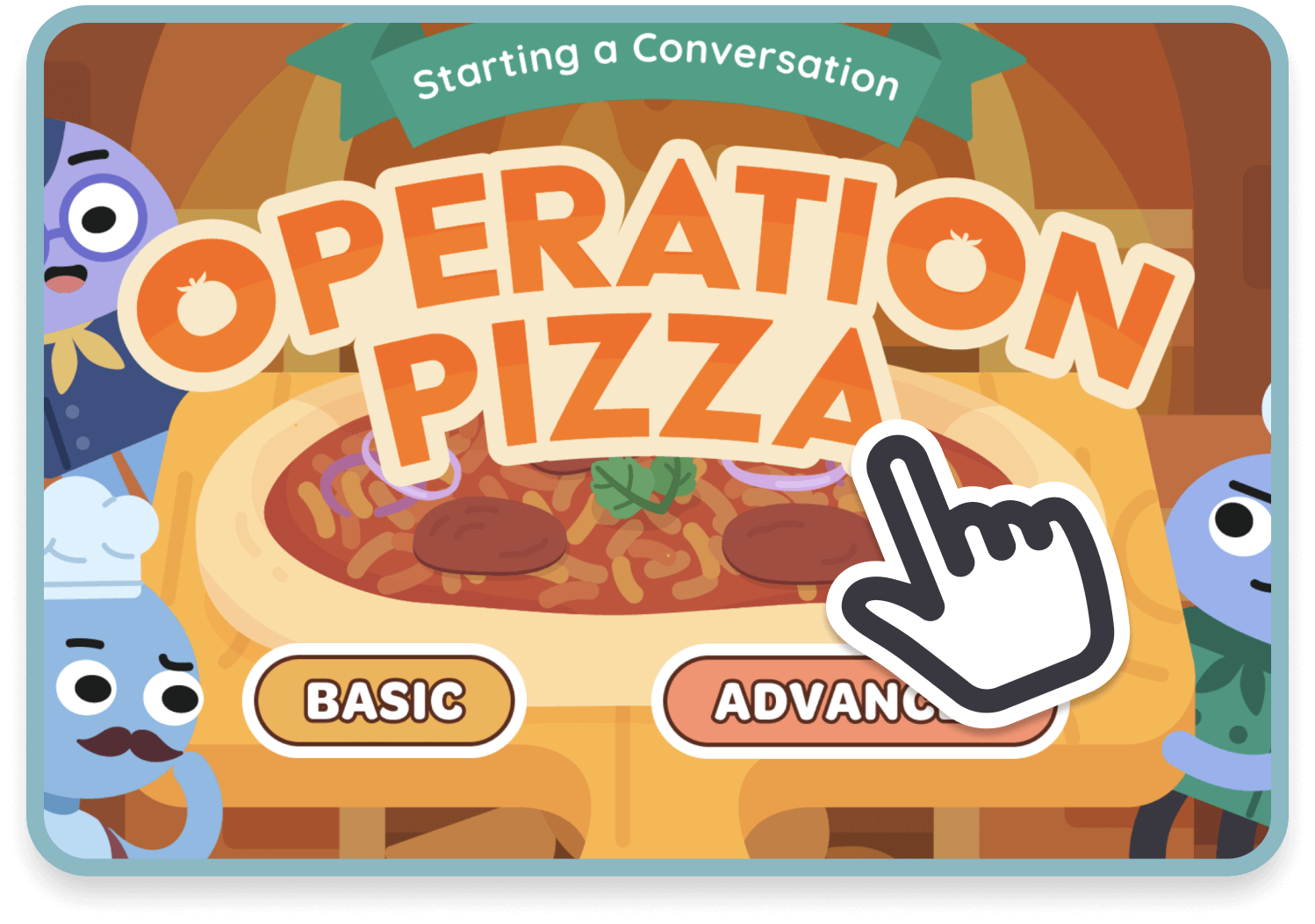
How to Use It:
- Have students play Operation Pizza individually or in small groups.
- Prompt them to verbalize their planning before they make moves.
- Debrief afterward to reflect on strategies and challenges they encountered.
Why It Matters:
- Strengthens flexible thinking and problem-solving in a fun format.
- Builds planning and organization in a low-pressure environment.
- Works well for both group work and individual sessions.
Task Initiation Interactive Dice Roller (Elementary)
This Task Initiation Interactive Dice Roller activity helps students get past the “I don’t know where to start” moment by turning task initiation into a game.
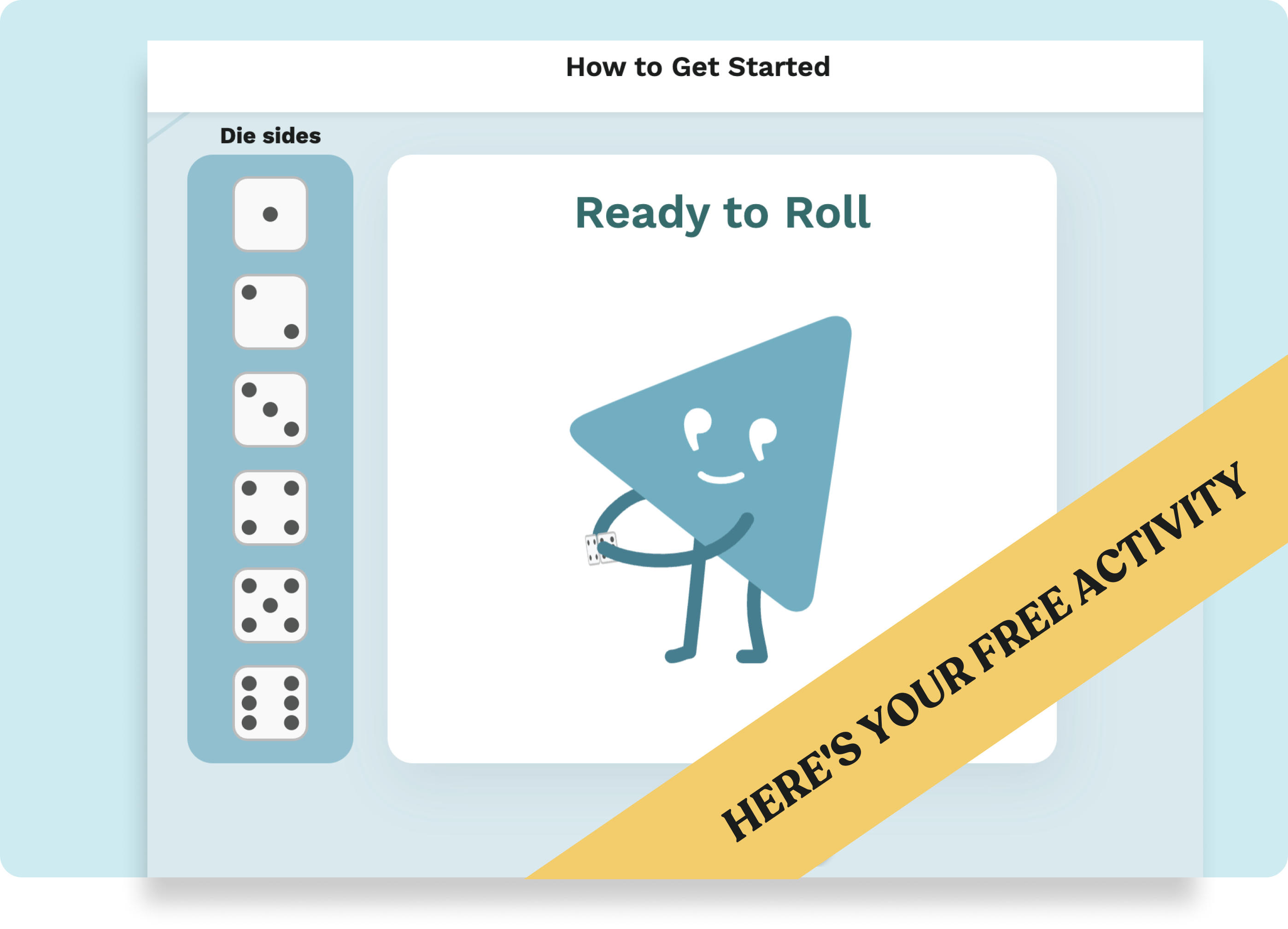
How to Use It:
- Open the Dice Roller and have students roll for a randomized challenge.
- Follow the prompt to begin a task right away.
- Use with individuals or in small group sessions.
Why It Matters:
- Supports students who delay or avoid starting work.
- Encourages quick decision-making and builds internal motivation.
- Provides a fun, low-stakes introduction to task initiation strategies.
Executive Functioning Lesson Plan & Worksheet (Elementary)
This lesson plan for elementary offers a structured way to introduce executive functioning concepts to younger students through direct instruction and hands-on activities.
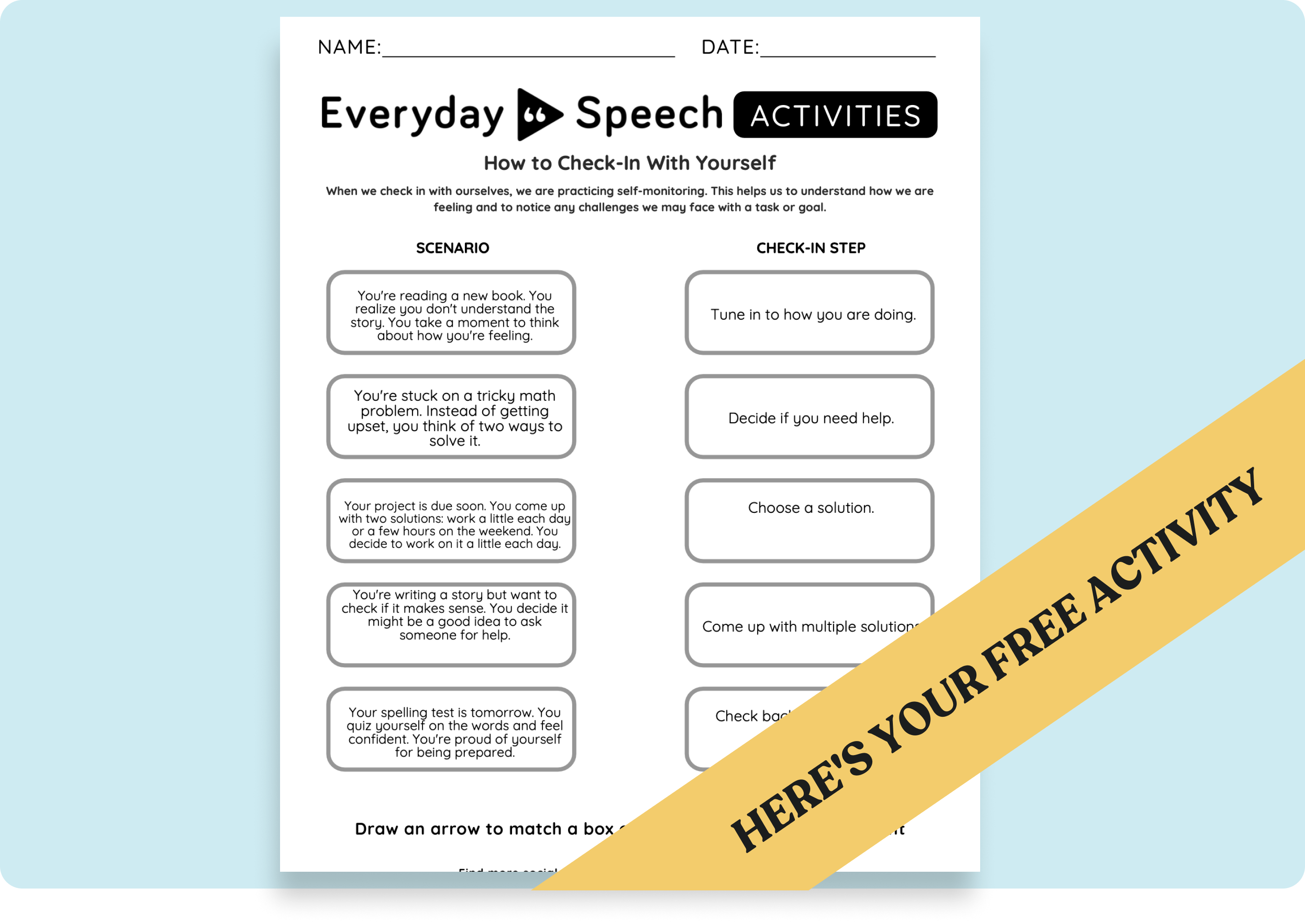
How to Use It:
- Use the lesson plan to teach what executive functioning means.
- Follow up with the worksheet to reinforce planning and organization.
- Invite students to reflect on how they use these skills in daily routines.
Why It Matters:
- Builds foundational understanding of executive functioning.
- Encourages practice and self-reflection.
- Offers clear guidance for classroom or small group implementation.
Executive Functioning Poster & Lesson Plan (Middle & High)
This visual poster outlines key executive functioning skills, while the paired lesson plan helps students set goals and connect the concepts to real-life challenges.
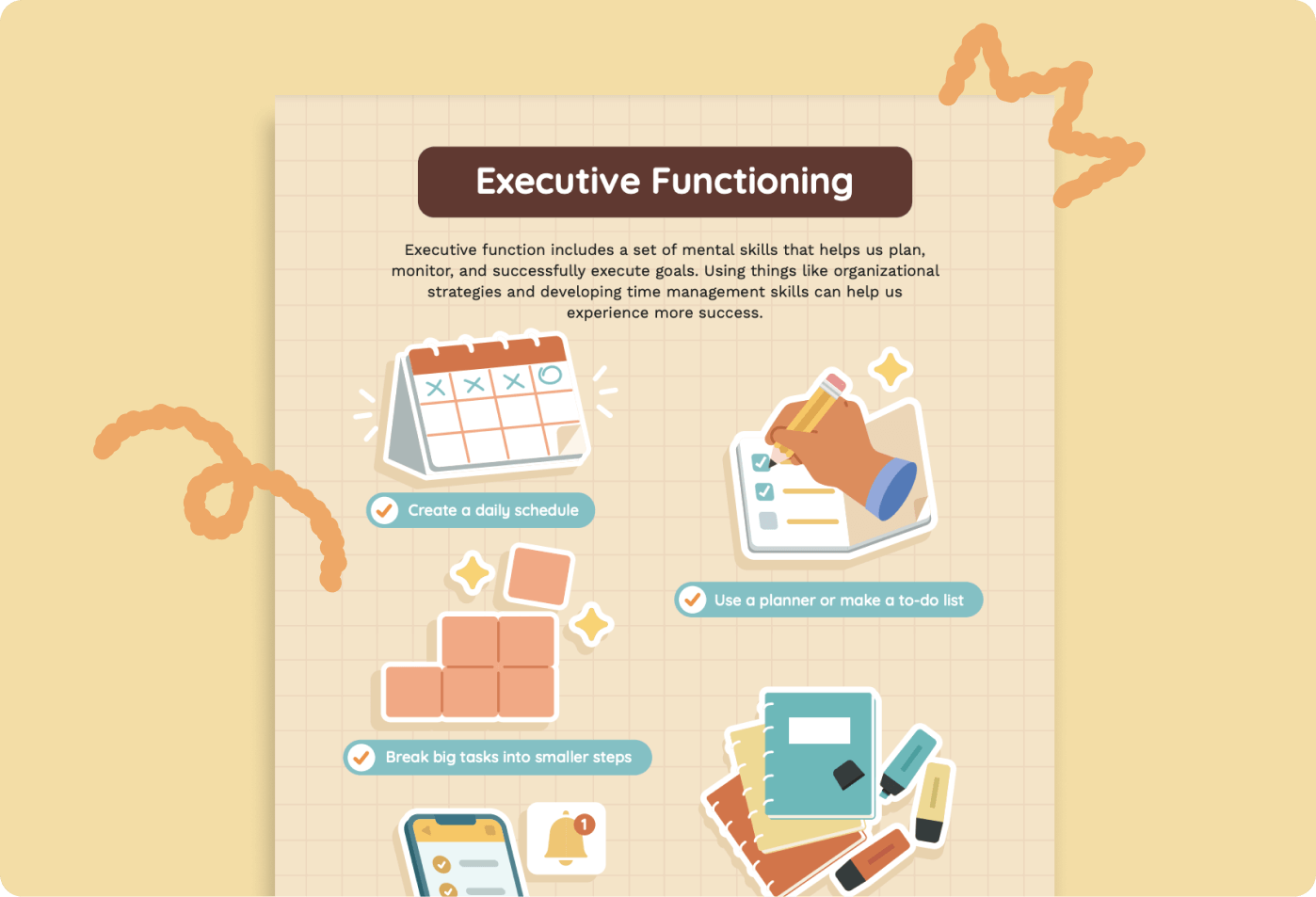
How to Use It:
- Hang the poster in a classroom or therapy space for reference.
- Use the lesson plan to walk through each skill and its relevance.
- Guide students in choosing one skill to set a personal goal around.
Why It Matters:
- Reinforces key concepts through visual repetition.
- Encourages goal-setting and metacognitive awareness.
- Helps students take ownership of their executive functioning growth.
Staying Organized Video & Lesson Plan (Middle & High)
This video introduces students to strategies for staying organized and managing their academic workload effectively.
How to Use It:
- Play the “Staying Organized” video in class or small group settings.
- Use the included lesson plan to guide a follow-up discussion.
- Have students create their own personalized organization plans.
Why It Matters:
- Offers real-world strategies that students can apply immediately.
- Builds self-management and executive functioning awareness.
- Encourages students to reflect on what organizational habits work for them.
Watch the Staying Organized Video:
Organizational Habits Activity (Middle & High)
This worksheet-based activity helps students assess their current habits and make concrete plans for improving organization.
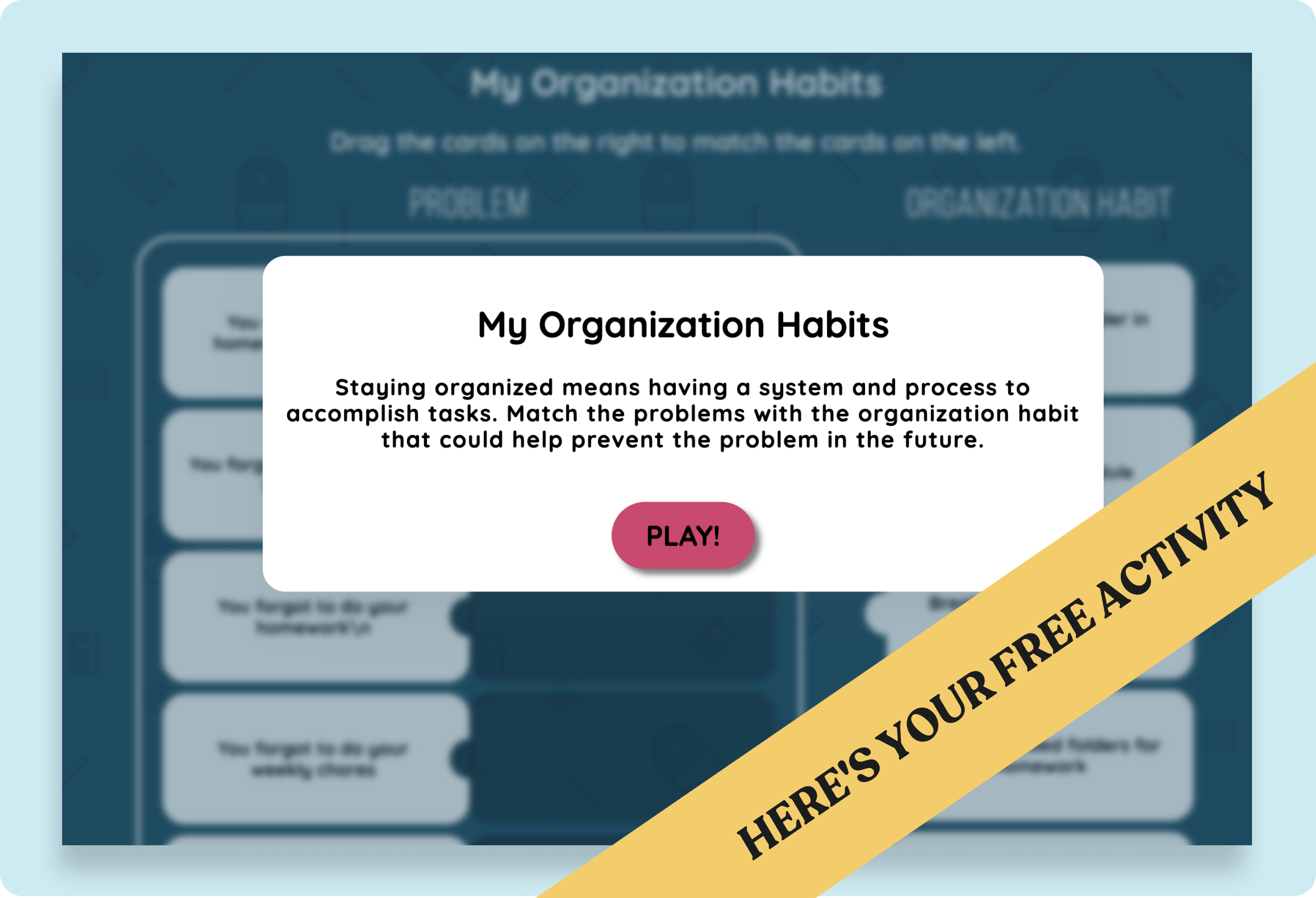
How to Use It:
- Assign the worksheet during a class period or small group lesson.
- Facilitate a discussion about which strategies are most effective.
- Support students in setting one or two realistic organization goals.
Why It Matters:
- Builds awareness of organizational strengths and gaps.
- Encourages practical goal-setting and tracking.
- Supports independence in managing school materials and routines.
Download Free Executive Functioning Activities
Teach skills like organization, planning, and task initiation with resources for interventions and whole-class lessons.
Helping Students Strengthen Executive Functioning Skills Every Day
Executive functioning is not fixed. These skills grow over time when students are given clear instruction, consistent practice, and supports that meet them where they are. Whether you are working on task initiation, organization, or flexible thinking, small interventions can create lasting change.
Start by choosing one strategy or resource to implement this week. Add a visual checklist, introduce a time management activity, or walk through a planning routine together. These simple steps help students build confidence, self-awareness, and the executive functioning skills they need to succeed in school and beyond.
FAQs About Teaching Executive Functioning Skills
What are executive functioning skills in students?
Executive functioning skills are the mental processes that help students plan, focus attention, remember instructions, manage emotions, and juggle multiple tasks successfully. These include working memory, impulse control, cognitive flexibility, task initiation, organization, and time management. When these skills are strong, students are more likely to succeed academically and socially.
Can executive functioning skills be taught?
Yes. These skills can be taught explicitly through modeling, structured routines, visual supports, and guided practice. Students benefit from learning what each skill looks like, why it matters, and how to apply it in real-life situations.
At what age should you start teaching executive functioning?
Executive functioning begins developing in early childhood and continues into early adulthood. Even preschoolers can benefit from simple routines that support impulse control and working memory. More advanced skills, such as planning and time management, are typically addressed in elementary and middle school as students gain independence.
What are some activities that build executive functioning?
Activities that involve remembering steps, adjusting to changes, planning ahead, or resisting impulses are great for building executive functioning. Examples include:
- Games like Simon Says, Red Light Green Light, or Uno
- Visual schedules or task checklists
- Time management tools like timers or calendars
- Role-playing scenarios that involve flexible thinking or problem-solving
- Video modeling of self-regulation or task initiation strategies
What does executive dysfunction look like in the classroom?
Students with executive functioning difficulties may struggle to start assignments, lose materials, forget directions, or have emotional outbursts when routines change. These behaviors are often mistaken for defiance or lack of motivation, but in reality, the student may not yet have the tools or strategies needed to manage these demands.
Can executive functioning skills be addressed in an IEP?
Yes. Executive functioning difficulties can be supported through an Individualized Education Program (IEP) when they impact the student’s ability to access the curriculum. These skills may be addressed in goals related to planning, organization, time management, emotional regulation, or task initiation.
For example, an IEP goal might state: “The student will use a visual checklist to independently initiate and complete multi-step assignments in 4 out of 5 opportunities.”
Supports for executive functioning may also appear in the accommodations section, such as extended time, frequent check-ins, or chunked assignments. While executive functioning is not a disability category, it is often addressed for students with ADHD, autism, or learning disabilities.

